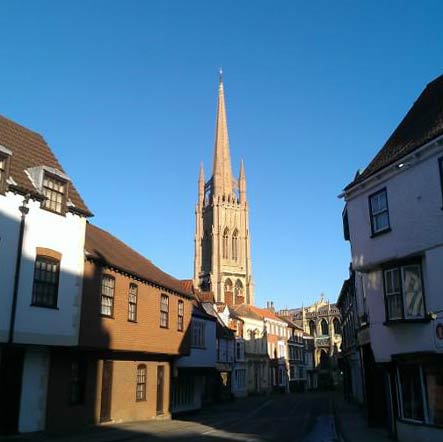Thomas Louth on:
[Wikipedia]
[Google]
[Amazon]
Thomas Louth, or Thomas de Luda (died after 1338) was an English-born judge who spent much of his career in Ireland. He was notable for his long and ultimately unsuccessful struggle with Elias de Asshebournham for the office of  He was a native of
He was a native of
Lord Chief Justice of Ireland
The Court of King's Bench (or Court of Queen's Bench during the reign of a Queen) was one of the senior courts of common law in Ireland. It was a mirror of the Court of King's Bench in England. The Lord Chief Justice was the most senior judge ...
.
 He was a native of
He was a native of Louth, Lincolnshire
Louth () is a market town and civil parish in the East Lindsey district of Lincolnshire, England.OS Explorer map 283:Louth and Mablethorpe: (1:25 000):
Louth serves as an important town for a large rural area of eastern Lincolnshire. Visitor a ...
, and was sometimes known by the Latin
Latin (, or , ) is a classical language belonging to the Italic languages, Italic branch of the Indo-European languages. Latin was originally a dialect spoken in the lower Tiber area (then known as Latium) around present-day Rome, but through ...
version of his name, Thomas de Luda (people born in Louth are still called "Ludensians").Ball, F. Elrington ''The Judges in Ireland 1221–1921'' John Murray London 1926 Vol.1 p.72 In 1324 he appears on a commission of oyer and terminer
In English law, oyer and terminer (; a partial translation of the Anglo-French ''oyer et terminer'', which literally means "to hear and to determine") was one of the commissions by which a judge of assize sat. Apart from its Law French name, the ...
. In the same year, he was appointed a judge of the Court of Common Pleas (Ireland)
The Court of Common Pleas was one of the principal courts of common law in Ireland. It was a mirror image of the equivalent court in England. Common Pleas was one of the four courts of justice which gave the Four Courts in Dublin, which is sti ...
but did not take up the latter office.
In 1331 he was appointed Lord Chief Justice of Ireland; he moved to Ireland
Ireland ( ; ga, Éire ; Ulster-Scots: ) is an island in the North Atlantic Ocean, in north-western Europe. It is separated from Great Britain to its east by the North Channel, the Irish Sea, and St George's Channel. Ireland is the s ...
and was granted lands at Howth
Howth ( ; ; non, Hǫfuð) is an affluent peninsular village and outer suburb of Dublin, Ireland. The district as a whole occupies the greater part of the peninsula of Howth Head, which forms the northern boundary of Dublin Bay, and include ...
, north of Dublin city. He then began a struggle with the Dublin-born judge Elias de Asshebournham for the office; the struggle lasted for most of the decade, and each man replaced the other so often that it is difficult to determine which of them held office at any given time. There was a genuine concern on the part of the English Crown
This list of kings and reigning queens of the Kingdom of England begins with Alfred the Great, who initially ruled Wessex, one of the seven Anglo-Saxon kingdoms which later made up modern England. Alfred styled himself King of the Anglo-Sa ...
about the poor quality of Irish-born judges, so Louth as an Englishman should have had the advantage; but Asshebournham, whose father had been a highly regarded royal servant, also had influence at Court.Frame p.115 In 1337 Louth suffered what seemed to be a decisive defeat when he was imprisoned for unspecified "excesses", yet the following year he was restored to office after "laudable testimony" to his good conduct, only to be finally removed from office later the same year. His rival Asshebournham stepped down in 1341.
References
{{DEFAULTSORT:Louth, Thomas People from Louth, Lincolnshire 14th-century Irish judges Lords chief justice of Ireland